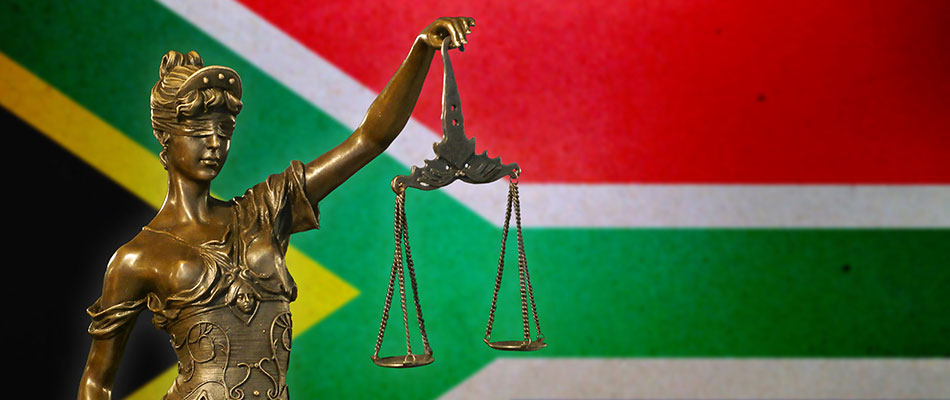Studying for an LLB degree in South Africa is a big step toward a successful career in law. The demand for skilled legal professionals is strong as the legal field continues to grow and change. Prospective law students need to meet certain academic and personal requirements to prepare for their studies. This includes having the right qualifications and subjects, understanding each university’s specific criteria, and meeting additional entry requirements.
Knowing what it takes to get into an LLB programme is essential. Hence, let’s discuss the detailed admission requirements for some of South Africa’s top universities, which will give you a clear path to achieving your goal of becoming a legal expert.
Table of Contents
Introduction To LLB Law Requirements In South Africa
In South Africa, the Bachelor of Laws (LLB) degree teaches essential legal knowledge and helps develop critical thinking and problem-solving skills needed for legal work. Knowing the various LLB admission requirements, like what subjects you need and any extra criteria, is crucial for students considering this path.
Understanding these LLB law requirements in South Africa helps future lawyers plan their studies carefully. They can adhere to the eligibility given by their preferred universities and ensure that the prerequisites are ready for admission. Following the application process properly can increase the chances of a successful enrolment.
General LLB Admission Requirements
Students in South Africa need to meet certain LLB law requirements to apply for this undergraduate degree. These standards ensure that students have the basic skills and knowledge required for law school. Let’s examine these requirements more closely.
Academic Qualifications
Applicants generally need a recognised National Senior Certificate (NSC) or an equivalent qualification.
Minimum Subject Requirements
Universities often require proficiency in subjects like English and Mathematics or Mathematical Literacy.
Minimum Admission Points
Some institutions use a points-based system where points are awarded based on NSC results.
Language Proficiency
Proficiency in the language of instruction, usually English, is essential.
Specific LLB University Requirements
University of South Africa (UNISA) LLB Requirements
To be admitted to Unisa, you need to meet specific qualifications for your LLB programme. If you don’t meet these requirements, you might consider applying for a Diploma or Higher Certificate programme where you meet both the statutory and additional requirements.
- National Senior Certificate (NSC) with a Degree endorsement, achieving at least 50% in the language of instruction, or
- Senior Certificate (SC) with matriculation exemption or qualification for exemption from the Matriculation Board, with a minimum of a D symbol on HG or a C symbol on SG in the language of instruction or
- A Higher Certificate in Law or Criminal Justice completed at a recognised higher education institution with an average of at least 60% or
- A 360-credit Diploma in Law or a related field at NQF level 6 from a recognised higher education institution.
University of Johannesburg (UJ) LLB Requirements
The University of Johannesburg (UJ) has specific requirements for its LLB programme to ensure candidates are ready for legal studies. These include academic qualifications and proficiency in certain subjects. Meeting these criteria is necessary for admission consideration.
- Minimum APS of 31 with Mathematics or 32 with Mathematical Literacy.
- English: Minimum level 5, which is 60% or higher.
- Additional Language: Minimum level 4, which is 50% or higher.
- Mathematics: Minimum level 3, which is 40% or higher, if applicable.
- Mathematical Literacy: Minimum level 4, which is 50% or higher, if applicable.
University of Cape Town (UCT) LLB Requirements
If you’re interested in studying law at the University of Cape Town (UCT), it’s important to know about the different paths to their LLB programmes. UCT offers a four-year undergraduate LLB programme and a three-year graduate LLB programme, each with unique requirements. Here are the essential points to consider when applying to these programmes.
Undergraduate LLB (Four-year straight programme):
- Specify the Faculty of Law when applying to UCT.
- Applications are assessed based on results in the National Senior Certificate (NSC) or equivalent school-leaving exam.
- Results in Academic Literacy and Quantitative Literacy components of the National Benchmark Tests (NBTs) are also considered.
Graduate LLB (Three-year programme for graduates):
- Specify the Faculty of Law when applying.
- This programme is considered an undergraduate degree.
- Applicants must have graduated from UCT or a recognised institution.
- An average of at least 65% in a standard undergraduate degree is required.
- Admission is competitive due to limited places, with priority given to applicants with higher averages.
- Applicants typically need a GPA higher than 65% due to high competition.
- Exceptions may be made for applicants who demonstrate potential despite not meeting the GPA threshold.
University of the Witwatersrand (Wits) LLB Requirements
At Wits University, aspiring law students have several options to pursue their LLB degree, tailored to different academic paths and goals. Whether you’re interested in a four-year, three-year, or two-year programme, each option has specific requirements and criteria for admission. Below, we outline what prospective students should know when applying to these programmes.
Four-year stream:
- The APS requirement is 46 or higher.
- Applicants need English as their Home Language OR Additional First Language Level 6.
- They also require Mathematics Level 4 OR Maths Literacy Level 6.
- Wait-listing is possible for applicants with an APS of 40-45, English Level 6, and Mathematics Level 4 OR Maths Literacy Level 6, depending on availability.
Three-year stream:
- There is no matric APS calculation.
- Admission depends on assessment criteria set by the School of Law and available places.
- Applicants with an undergraduate degree from another institution must apply for Year 2 of the LLB programme.
- A minimum average of 65% in the final year of the undergraduate degree is required.
Two-year stream:
- There is no matric APS calculation.
- Admission is based on assessment criteria set by the School of Law and availability of places.
- Wits students with a BA Law or BCom Law can apply for Year 3 of the LLB programme.
University of Pretoria (UP) LLB Requirements
If you’re applying to the University of Pretoria with a National Senior Certificate (NSC) or Independent Examination Board (IEB) qualification, it’s essential to know the admission requirements. Here are the main points you need to be aware of.
Admission Requirements:
- These requirements apply to all applicants with a National Senior Certificate (NSC) and Independent Examination Board (IEB) qualifications.
- For more detailed information, refer to the Faculty Brochure on the University of Pretoria’s website.
Minimum Requirements:
- Achievement Level: English Home Language or English First Additional Language
- NSC/IEB Level: 6
- APS: 35
University of the Western Cape (UWC) LLB Requirements
If you aim for an LLB degree at the University of the Western Cape (UWC), you can choose between a four-year or five-year programme. Both options have specific academic requirements, such as proficiency in English and another language and having skills in Mathematics or Mathematical Literacy. UWC also considers equivalent qualifications approved by its Senate. Here are the detailed requirements for each programme:
Four-Year LLB:
- A minimum score of 37 points according to the university’s points system.
- Specific requirements:
- English (Home or First Additional Language): Level 4 (50-59%).
- Another language (Home or First Additional Language): Level 3 (40-49%).
- Mathematics: Level 3 (40-49%) OR Mathematical Literacy: Level 5 (60-69%).
- Equivalent Qualification:
- A qualification or level of competence deemed equivalent by the University Senate.
Five-Year LLB:
- A minimum score of 37 points according to the university’s points system.
- Specific requirements:
- English (Home or First Additional Language): Level 4 (50-59%).
- Another language (Home or First Additional Language): Level 3 (40-49%).
- Mathematics: Level 3 (40-49%) OR Mathematical Literacy: Level 5 (60-69%).
- Equivalent Qualification: A qualification or level of competence deemed equivalent by the University Senate.
Two-Year LLB:
- A BA (Law) or BCom (Law) degree.
Three-Year LLB:
- A Bachelor’s degree without legal subjects.
University of KwaZulu-Natal (UKZN) LLB Requirements
To study for an LLB degree at the University of KwaZulu-Natal (UKZN), students need to meet specific academic requirements set by the university. These ensure that applicants are ready academically for the challenging law programme at UKZN.
- National Senior Certificate with degree admission.
- English Home Language: Level 5 (60-69%) OR English First Additional Language: Level 6 (70-79%).
- Mathematical Literacy: Level 5 (60-69%) OR Mathematics: Level 3 (40-49%).
- Life Orientation: Level 4 (50-59%).
- Minimum Academic Point Score (APS): 32 (Life Orientation is not included in this score).
North-West University (NWU) LLB Requirements
North-West University (NWU) offers two LLB programmes: a four-year and a five-year option, each with specific academic requirements. These ensure that students are well-prepared for the challenging legal studies at NWU.
Four-Year Programme:
- To qualify for the four-year programme, you need to have a National Senior Certificate (NSC) or a National Certificate (Vocational) [NC(V)] for degree studies.
- You must also have a full matriculation exemption.
- Additionally, you are required to achieve a Level 5 (60-69%) in your Home Language.
- You also need to achieve a Level 5 (60-69%) in your First Additional Language.
Five-Year Programme:
- To qualify for the five-year programme, you need to have a National Senior Certificate (NSC) or a National Certificate (Vocational) [NC(V)] for degree studies.
- You must also have a full matriculation exemption.
- Additionally, you are required to achieve a Level 4 (50-59%) in your Home Language.
- You also need to achieve a Level 4 (50-59%) in your First Additional Language.
- For Mathematics, you must achieve either a Level 3 (40-49%) in Grade 12 Mathematics or a Level 5 (60-69%) in Mathematical Literacy.
Which Subjects Are Required For Law?
To get into an LLB programme, students need to meet certain subject requirements that show they are ready for law studies. These subjects ensure students have the language and analytical skills needed to succeed. Key requirements usually include proficiency in English, Mathematics or Mathematical Literacy, and sometimes Life Orientation or an additional language. Let’s take a closer look at these subjects.
English
Often mandatory, demonstrating proficiency in English is crucial for studying law.
Mathematics or Mathematical Literacy
Some universities may require a pass in Mathematics or Mathematical Literacy to ensure students have the necessary numeracy skills.
Life Orientation
While not always compulsory, some universities may consider this subject in their selection criteria.
Additional Language
Proficiency in an additional language can be advantageous but isn’t always required.
Additional LLB (Law) Entry Requirements
To get into an LLB programme in South Africa, students need to meet certain LLB law requirements. These requirements help ensure students have the basic knowledge and skills needed for law school. Key criteria include having recognised academic qualifications, passing certain subjects, earning enough admission points, and being proficient in the language of instruction. Let’s take a closer look at these important admission requirements.
Entrance Examinations
Some institutions may require applicants to pass a Law Admission Test or an entrance examination designed to assess their suitability for legal studies.
Personal Statements or Essays
Candidates may need to submit a personal statement or essay explaining their reasons for studying law and their career goals.
Interviews
In some cases, applicants may be asked to attend an interview as part of the selection process.
Work Experience
Certain universities may value or require relevant work experience, especially in the legal field, as part of their admissions criteria.
Conclusion
In conclusion, pursuing an LLB degree in South Africa requires careful consideration of your academic qualifications, the subjects you need to pass, and the specific criteria set by each university. Meeting these LLB law requirements in South Africa is crucial for starting a successful career in law. Every university has its own requirements, which show the diversity and high standards of legal education in South Africa. Understanding and meeting these criteria will help you confidently pursue your dream of becoming a skilled legal professional ready to tackle the complexities of law. Whether you’re aiming for a standard four-year LLB or a specialised programme, thorough preparation will prepare you well for the challenges and opportunities in the legal field ahead.
To ensure you’re on track for a successful legal career, consider exploring Regenesys Law School’s holistic Bachelor of Laws programme that prepares you for the challenges of the legal landscape. Begin your journey today.
FAQs on What You Need to Know About South African LLB Law Admission Requirements
Q1. What are the admission requirements for the Bachelor of Law (LLB) in South Africa?
LLB Law entry requirements in South Africa can differ for each university. Students are advised to check them carefully while applying for admission.
Q2. What are the requirements to get into the University of South Africa (UNISA) for an LLB degree?
To get into UNISA’s LLB programme, you need an NSC with a Degree endorsement, scoring at least 50% in the teaching language. You can also have a Senior Certificate (SC) with matriculation exemption, a Higher Certificate in Law or Criminal Justice with at least 60% average, or a 360-credit Diploma in Law or a related field at NQF level 6.
Q3. What are the options for studying LLB at the University of Cape Town (UCT)?
UCT offers a four-year undergraduate LLB and a three-year graduate LLB. The four-year programme examines your NSC results and National Benchmark Tests (NBTs). The three-year programme is for graduates from UCT or another recognised university, and you need at least a 65% average in your undergraduate degree.
Q4. Are the LLB Law requirements specific to different universities?
Each university offering LLB programmes in South Africa has its own set of requirements. However, some common ones can include academic qualifications (like the NSC), subject pass requirements (e.g., English and Mathematics), and possibly additional criteria such as Admission Point Scores (APS).
Q5. Are there any extra requirements for LLB programmes in South Africa?
Extra requirements might include passing a Law Admission Test or an entrance exam, writing a personal statement or essay, attending an interview, and possibly having some relevant work experience in the legal field.







